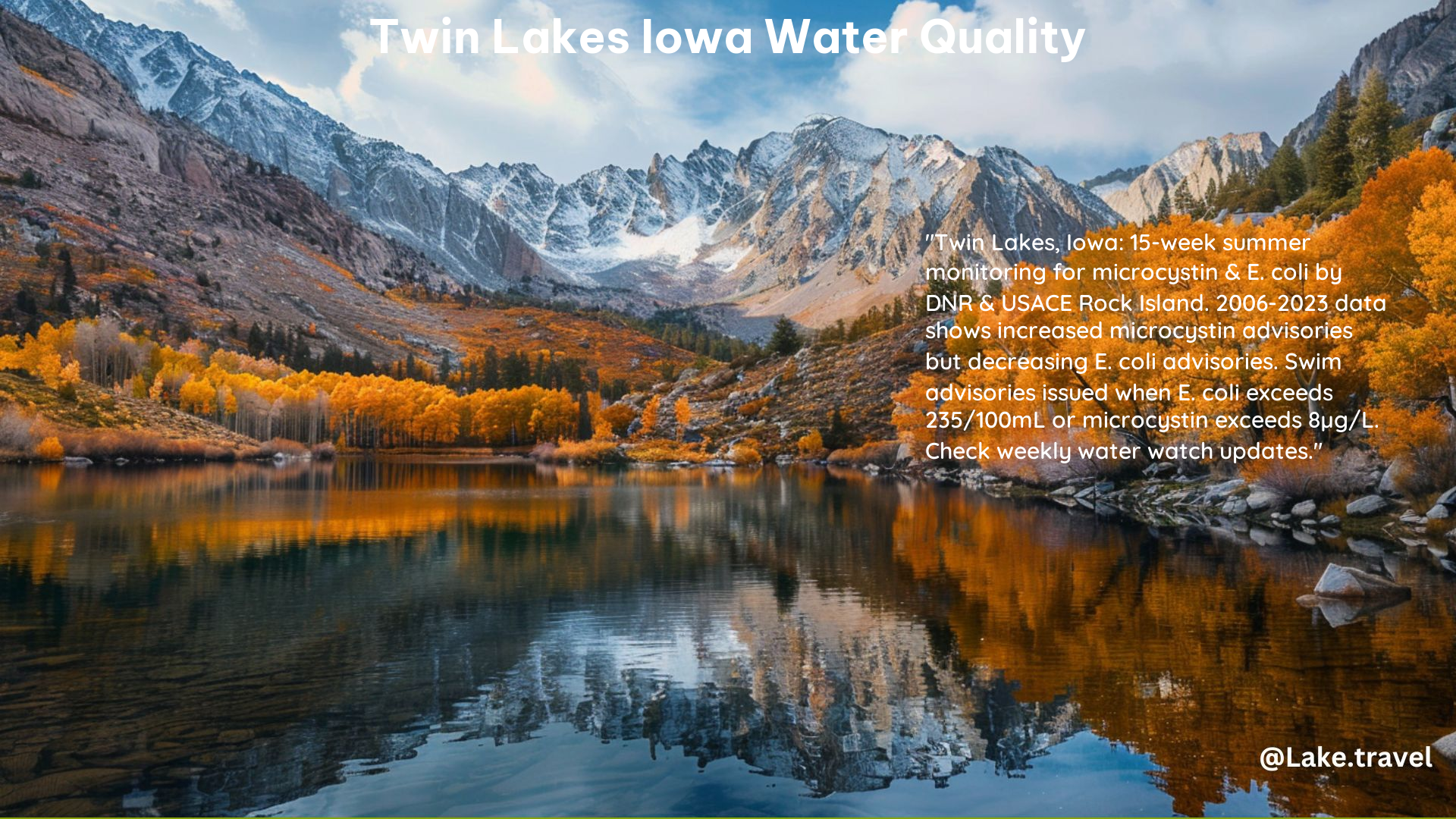The State of Twin Lakes Iowa Water Quality
Twin Lakes in Iowa, which includes North Twin Lake and South Twin Lake, are popular destinations for outdoor recreation, particularly during the summer months. However, the water quality at these lakes can sometimes be compromised, posing health risks to swimmers and other water users.
According to the Iowa Department of Natural Resources (DNR), routine water quality monitoring is conducted at all state park beaches and many locally managed beaches in Iowa, including those at Twin Lakes. This monitoring includes testing for E. coli bacteria and microcystin, a toxin produced by certain types of blue-green algae.
Swim Advisories at Twin Lakes

In 2023, the DNR issued a total of 52 swim advisories for state park beaches due to high levels of E. coli or microcystin. Of these, 39 were E. coli-related advisories and 13 were microcystin-related advisories. While specific data for Twin Lakes was not provided, it is possible that advisories were issued for these lakes as well.
Causes of Water Quality Issues at Twin Lakes
The sources of bacteria and pathogens in beach water can include:
- Improperly constructed and operated septic systems and sewage treatment plants
- Manure spills
- Storm water runoff from lands with wildlife and pet droppings
- Direct contamination from waterfowl, livestock, or small children in the water
Heavy rainfall can also contribute to high levels of bacteria in beach water by transporting fecal bacteria from these sources to the water.
Mitigating the Risks at Twin Lakes
To mitigate the risk of waterborne illness, the DNR recommends the following:
- Avoid swimming in cloudy or murky water, as bacteria are destroyed by sunlight and murky water aids in their survival.
- Avoid swallowing beach water.
- Shower off after swimming.
Staying Informed about Twin Lakes Water Quality
For up-to-date information on beach advisories at Twin Lakes and other Iowa beaches, the DNR provides a beach monitoring hotline (515-725-3434) and maintains a beach monitoring website.
Conclusion
While the water quality at Twin Lakes can sometimes be a concern, there are steps that can be taken to mitigate the risks and ensure a safe and enjoyable experience for lakes touring enthusiasts. By staying informed and following the recommended guidelines, visitors can make the most of their time at these beautiful Iowa lakes.
References:
- Beach Monitoring | AQuIA – Iowa Department of Natural Resources. https://programs.iowadnr.gov/aquia/Programs/Beaches
- Weekly Water Watch July 26. https://iaenvironment.salsalabs.org/weeklywaterwatch-7-26
- State Park Beach Monitoring – Iowa Department of Natural Resources. https://www.iowadnr.gov/idnr/Environmental-Protection/Water-Quality/Water-Monitoring/Beaches
- Beach Monitoring: Safe to Swim? – Iowa Environmental Council. https://www.iaenvironment.org/our-work/clean-water-and-land-stewardship/swimming-advisories
- Weekly Water Watch – Iowa Environmental Council. https://www.iaenvironment.org/our-work/clean-water-and-land-stewardship/weekly-water-watch
